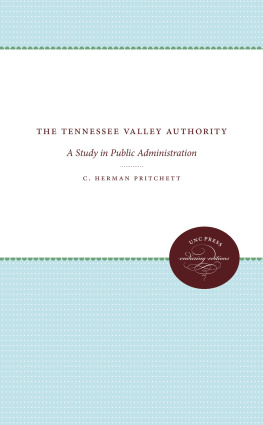V.S. Pritchett - Marching Spain
Here you can read online V.S. Pritchett - Marching Spain full text of the book (entire story) in english for free. Download pdf and epub, get meaning, cover and reviews about this ebook. year: 2012, publisher: Bloomsbury Publishing;Bloomsbury Reader, genre: Detective and thriller. Description of the work, (preface) as well as reviews are available. Best literature library LitArk.com created for fans of good reading and offers a wide selection of genres:
Romance novel
Science fiction
Adventure
Detective
Science
History
Home and family
Prose
Art
Politics
Computer
Non-fiction
Religion
Business
Children
Humor
Choose a favorite category and find really read worthwhile books. Enjoy immersion in the world of imagination, feel the emotions of the characters or learn something new for yourself, make an fascinating discovery.

- Book:Marching Spain
- Author:
- Publisher:Bloomsbury Publishing;Bloomsbury Reader
- Genre:
- Year:2012
- Rating:5 / 5
- Favourites:Add to favourites
- Your mark:
- 100
- 1
- 2
- 3
- 4
- 5
Marching Spain: summary, description and annotation
We offer to read an annotation, description, summary or preface (depends on what the author of the book "Marching Spain" wrote himself). If you haven't found the necessary information about the book — write in the comments, we will try to find it.
In spring 1927 V.S Pritchett set out to walk 300 miles across Spain. The country was almost completely isolated, and Pritchett describes a timeless country on the cusp of being riven by civil war, populated by a wonderful selection of characters.
Marching Spain — read online for free the complete book (whole text) full work
Below is the text of the book, divided by pages. System saving the place of the last page read, allows you to conveniently read the book "Marching Spain" online for free, without having to search again every time where you left off. Put a bookmark, and you can go to the page where you finished reading at any time.
Font size:
Interval:
Bookmark:
On both sides of the Atlantic V.S. Pritchett has been acclaimed as one of the great masters of the short story. He is also distinguished as a critic and a traveller. Born in Suffolk in 1900, he left school at the age of sixteen to work in the leather trade in London. In the Twenties in Paris he worked as a shop assistant and as a shellac salesman, and took to journalism, first during the Irish Civil War and later in Spain.
His first book, Marching Spain, the account of a long walk from Badajoz to Vigo, was published in 1928 and from then on travel was his recreation, inspiring evocations of places and peoples in The Spanish Temper (1954) and London Perceived (1962), both published by The Hogarth Press, Foreign Faces (1964), New York Proclaimed (1965) and Dublin (1967). The author of biographies of Balzac and Turgenev, he gave the Clark Lectures on George Meredith in 1969. He was for many years a director of and contributor to the New Statesman. He contributed regularly to the New Yorker and the New York Review of Books. His critical works include The Living Novel (1949), The Myth Makers (1979), The Tale Bearers (1980) and A Man of Letters (1985). His two volumes of autobiography, A Cab at the Door (1968) and Midnight Oil (1971), are well known in Great Britain and abroad. His novels include Nothing Like Leather (1935), Dead Man Leading (1949) and Mr Beluncle (1959). The first volume of his Collected Stories appeared in 1982 and More Collected Stories in 1983. V.S. Pritchett died in 1997.
V. S. Pritchett

To Dorothy
This electronic edition published in 2012 by Bloomsbury Reader
Bloomsbury Reader is a division of Bloomsbury Publishing Plc, 50 Bedford Square,
London WC1B 3DP
First published in Great Britain 1988 by The Hogarth Press
Copyright 1988 V. S. Pritchett
All rights reserved
You may not copy, distribute, transmit, reproduce or otherwise
make available this publication (or any part of it) in any form, or by any means
(including without limitation electronic, digital, optical, mechanical, photocopying,
printing, recording or otherwise), without the prior written permission of the
publisher. Any person who does any unauthorised act in relation to this publication
may be liable to criminal prosecution and civil claims for damages.
The moral right of the author is asserted.
eISBN: 9781448209835
Visit www.bloomsburyreader.com to find out more about our authors and their books
You will find extracts, author interviews, author events and you can sign up for
newsletters to be the first to hear about our latest releases and special offers.
Marching Spain was my first book. It was written in 1927 and was published in 1928, on condition that I finished a collection of short stories and a novel, and it did not earn its advance of 25. I was temporarily driven to earn a living by translating long French and Spanish commercial documents for a Greek at the rate of a farthing a word.
Now, when I re-read my first book, I forgive myself for the patches of rhetorical writing. After all, I reflect, the famous foot-sloggers, like Hazlitt, Stevenson, Meredith, not to mention the poets of the Open Road school, had always harangued the scenery and the people they met as they clumped along, talking and even declaiming to themselves. My own model was the oratorical Hilaire Belloc of The Path to Rome: he certainly marched for he had done his military service in the French army. I had done no more than to walk through the West of Ireland during the Civil War and once from Paris to Orleans in the belief that this was the only way to know the common people of any country.
I must confess that I knew Spain much better than I pretended. In 1924 after being an untrained reporter in Ireland during the Civil War for the Christian Science Monitor, I was sent to Spain during the dictatorship of Primo de Rivera when the censorship made news scarce. Spain became my private university. I settled down to learn Spanish and was soon deep in contemporary Spanish literature, in the essays of Azorin, in the company of Pio Baroja, the conversation of the novelist Perez de Ayala who later became the Spanish Ambassador in London. Unamunos The Tragic Sense of Life became my Bible.
My job came to an end but I returned to Spain almost at once to do this long walk. The one region I had not seen was the little-visited province close to the Portuguese frontier, known as Las Hurdes, a lonely region of great poverty. In no time in my life except thirty years later when I walked among the primitive poor whites of the Appalachians in the United States have I been so tenderly treated.
When Marching Spain was published it was reviewed (I was cheered to see at enormous length) by that great comic writer Beachcomber, famous for his long walks in the Pyrenees. He ridiculed my prose and made fun of my attitudinising. On the other hand Desmond MacCarthys highbrow Life and Letters said that if I was crankish I had a good ear, was well-informed and that George Borrow and Richard Ford would gladly make room for me at their table at the Spanish Inn where we would talk of those cosas de Espaa things that can happen only in Spain. Even now I can still hear the lamenting voice of the poor ragged woman riding on a donkey which was led by her two little children, calling out to me at a deserted cross road: Sir, I am blind and I cannot see the signpost. The road to Zamora, sir. Tell us the road. God have pity on us. Three leagues riding, sir. A terrible thing it is not to have ones sight.
One of those cosas.
Spain haunted me, until thirty years later I wrote The Spanish Temper.
V.S. Pritchett, London 1988
A strange country draws from the heart strange cries, strange assertions, the fitness and worth of which time alone can test. In my march across Spain from Badajoz to Leon, which this book describes, I have recorded only what then I heard from the people, from the lands voice, and from my own heart. I thought at the time the things that I have set down were significantdoes not the present always seem so and oneself the most significant being in it?and now I try to catch your sympathy, for without it these poor, honest things may appear as empty as a road that has been travelled on in days that cannot come back.

Discover books by V.S. Pritchettpublished by Bloomsbury Reader at
www.bloomsbury.com/V.S.Pritchett
A Careless Widow and Other Stories
A Man of Letters
At Home and Abroad
Chekhov
Dead Man Leading
Dublin
Foreign Faces
George Meredith and English Comedy
In My Good Books
Lasting Impressions
Marching Spain
The Camberwell Beauty
The Living Novel
The Gentle Barbarian
The Key to My Heart
The Lady from Guatemala
The Other Side of a Frontier
The Spanish Temper
To Spain and the Worlds Side
My dreams were of repeated and frustrated attempts at departure. I was in the taxi but the taxi would not go to the station. I was in the station but there was no train. I was in the train but dressed only in pyjamas. I woke up at five oclock, at half-past five, at twenty-five minutes to six, at twenty to six, at five to six. It was barely light, but I could hear the rubbery shudder of vermilion busses in Tottenham Court Road. I was counting the busses. There were three, four, five, six, but never seven. The seventh bus never came. I had to begin all over againtwo, three, four, five, six. At last a bus stopped outside a furniture shop which had a lacquer grandfather clock in the window.
Font size:
Interval:
Bookmark:
Similar books «Marching Spain»
Look at similar books to Marching Spain. We have selected literature similar in name and meaning in the hope of providing readers with more options to find new, interesting, not yet read works.
Discussion, reviews of the book Marching Spain and just readers' own opinions. Leave your comments, write what you think about the work, its meaning or the main characters. Specify what exactly you liked and what you didn't like, and why you think so.





